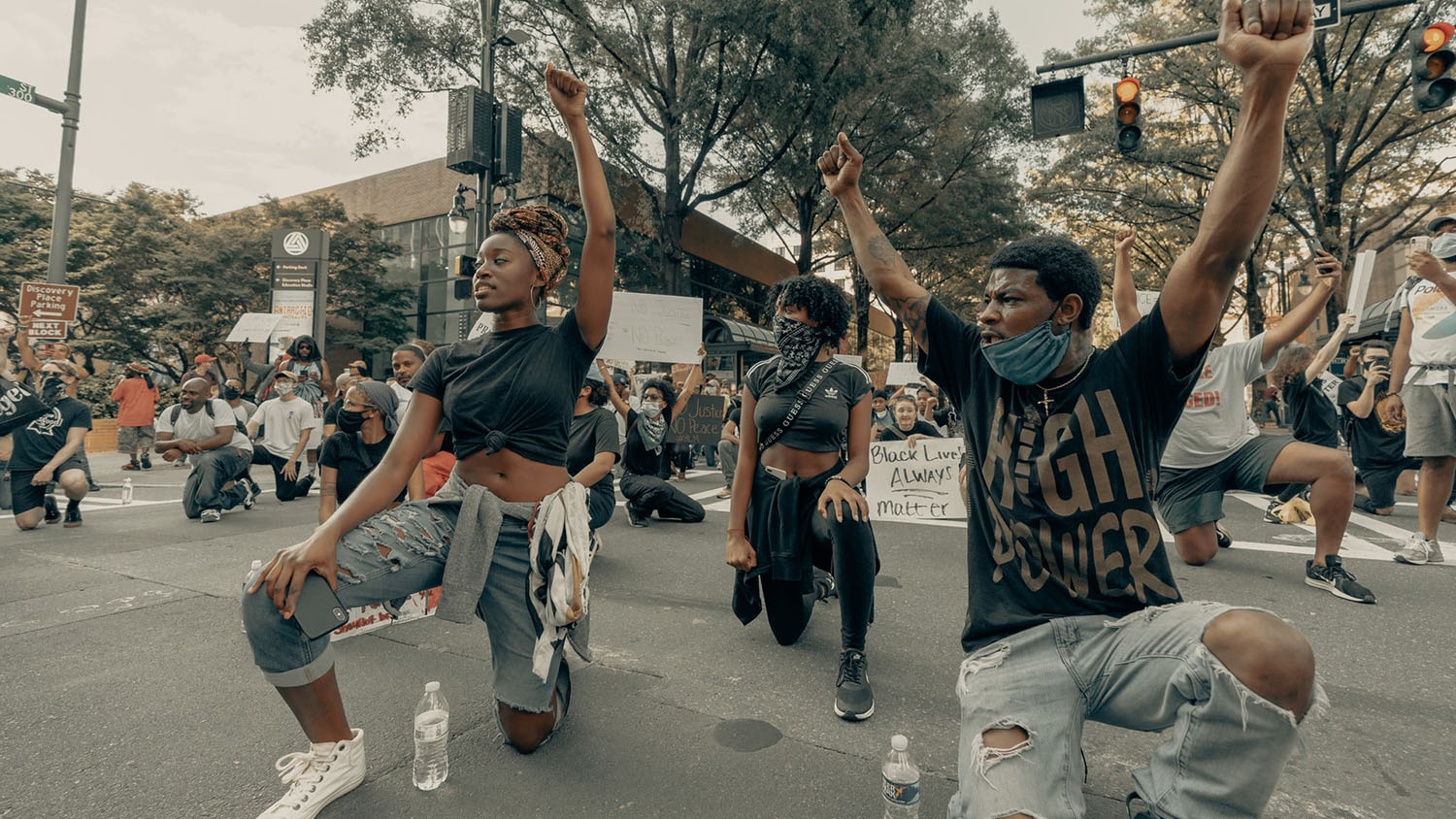A recent study from North Carolina State University underscores the feedback loop between racism, stress and anti-racist activism in young Black people. Specifically, the study highlights that experiencing racism is stressful for Black youth in their late teens and twenties, and that taking action to address racism is both a response to that stress and a source of stress in itself.
“There’s a lot of data demonstrating that racism is stressful and contributes to physical and mental health challenges for Black people,” says Elan Hope, corresponding author of the study and an associate professor of psychology at NC State. “We wanted to get a better understanding of what role engaging in activism can play in contributing to that stress. Is there a price associated with fighting racism? And, if so, what sort of toll does it exact?
“The burden of ‘solving’ racism falls largely on the people most affected by racism. The more we understand that burden, the better able we will be to support the people who are doing the work.”
To that end, the researchers conducted a survey of 443 Black adolescents (ages 14-17) and 447 Black emerging adults (ages 18-29). The survey included questions aimed at assessing physiological and psychological stress associated with anticipating racist events. The survey also asked participants about the extent to which they had experienced various instances of racism. In addition, the survey asked about the extent to which participants engaged in anti-racism activism. Activism was characterized as either consisting of low-risk activities, such as wearing a Black pride t-shirt, or high-risk activities, such as participating in a public demonstration.
“For emerging adults, we found that the more racism-related physiological stress participants reported, the more likely they were to engage in high-risk activism, such as participating in protests,” says Vanessa Volpe, co-author of the study and an assistant professor of psychology at NC State.
The researchers used statistical models in an attempt to determine whether, in light of past experiences with racism, study participants who had higher levels of stress were more likely to engage in high-risk activism, or if people were more likely to engage in activism because they have higher levels of stress.
“We found that it was a reciprocal relationship for emerging adults,” Hope says. “In other words, for emerging adults, it was true that higher levels of physiological stress were associated with engaging in high-risk activism, and that engaging in high-risk activism was associated with higher levels of physiological stress. But for adolescents, the models suggested that high levels of physiological stress were associated with high-risk activism – but not that activism was contributing to physiological stress.”
Both adolescents and emerging adults also reported a relationship between racism-related psychological stress and engaging in low-risk activism, such as confronting someone who made a racist joke. Again, this relationship was reciprocal for emerging adults, but not for adolescents.
“These findings are important for youth organizers and adults who work with youth on social justice initiatives,” Hope says. “To support youth, it is important to help them process the stress associated with racism and anti-racism activism. While young people seek to make changes in their communities, they must also pay attention to how their activism is impacting their own mental and physical health. Our findings show that these relationships might be different as people transition from adolescence to young adulthood.”
A paper on the study, “Anti-racism activism among Black adolescents and emerging adults: Understanding the roles of racism and anticipatory racism-related stress,” is published in the journal Child Development. The journal article is open access. The paper was co-authored by Alexis Briggs and Perusi Benson, who are Ph.D. students at NC State.
-shipman-
Note to Editors: The study abstract follows.
“Anti-racism activism among Black adolescents and emerging adults: Understanding the roles of racism and anticipatory racism-related stress”
Authors: Elan C. Hope, Vanessa V. Volpe, Alexis S. Briggs and G. Perusi Benson, North Carolina State University
Published: Feb. 25, Child Development
DOI: 10.1111/cdev.13744
Abstract: This study examines associations between individual racism, anticipatory racism-related stress, and anti-racism activism among Black adolescents (n = 443; Mage = 15.6; 57.4% female) and emerging adults (n = 447; Mage = 23.8; 77.6% female). The authors tested competing hypotheses about associations between individual racism and anti-racism activism on anticipatory racism-related stress. Findings indicated anticipatory racism-related stress may be both a catalyst and consequence of engagement in anti-racism activism for Black adolescents and emerging adults. Results for each age group varied by type of stress (physiological; psychological) and activism (low-risk; high-risk). Supporting youth engagement in anti-racism activism without increasing anticipatory racism-related stress is a key priority for meaningfully advancing scholarship on the development of anti-racism and pursuit of racial justice.
This post was originally published in NC State News.
- Categories:



